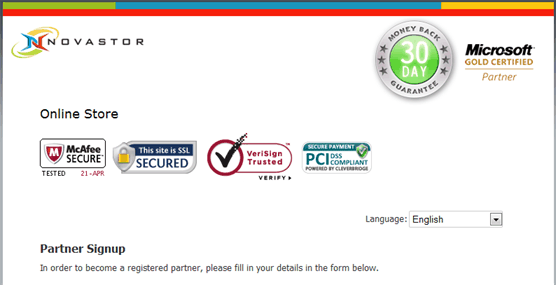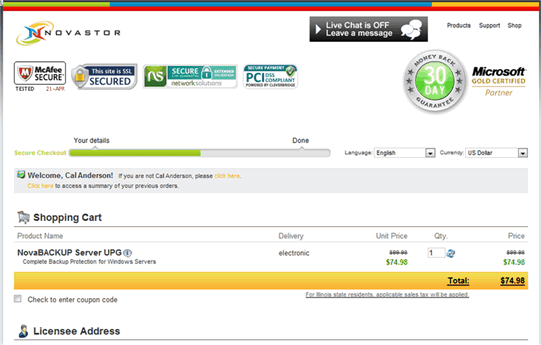This is the second in a three-part series explaining how companies selling software to businesses (B2B) should leverage their e-store infrastructure across multiple customer touch points.
Good news for B2B software companies – selling more expensive software to businesses has reached an important inflection point. Business customers are ready, willing and able to buy directly online. As discussed in the previous blog post, Three ways to leverage e-stores for B2B software, B2B companies need to offer their products online without requiring a customer to contact the inside sales team or a reseller.
However, as any B2B company knows, resellers are one of the most important channels when it comes to selling B2B software. It’s time to use your e-store to support and organize a successful reseller program. Leverage your e-store functionality to automate many of the typical channel management processes for resellers and distributors, collectively referred to as resellers in this post.
Resellers fill a critical area of a company’s B2B strategy, such as:
- Selling into a region where the OEM doesn’t have a presence
- Offering a local support option
- Building awareness for your product
- Providing market feedback
Many companies struggle to build and manage a successful reseller program because copious amounts of time and experience are required. Finding, filtering, training and cultivating an initial list of hundreds of potential resellers down to less than 10 quality resellers takes a dedicated effort. Once those 10 quality resellers have been identified and brought into the fold, there’s the ongoing maintenance and management to keep a reseller network engaged and efficient. A complete e-store implementation has tools that can help channel managers automate and augment many of these typical reseller processes.
While many resellers may prefer calling your channel manager and negotiating discounts for every order, there are a variety of ways, if you sell via channels, you should leverage your e-store technology:
- Timeliness – Resellers want to order on their schedule, not necessarily only when your office is open.
- Experience – Some resellers are knowledgeable and don’t need to speak with your channel manager before placing an order.
- Payment methods – Traditional purchase orders, price quotes and VAT waived processes are supported online.
- Credit Limits – Buying on pre-approved credit limits reduces order friction.
- Automation – Manage resellers in bulk rather than one-on-one or on paper.
For all the above reasons, companies that sell B2B software should integrate e-store technology into their channel management program to better support resellers and distributors. The following are common ways resellers interact with your e-store:
- Submit new applications to become a reseller
- Place orders at previously negotiated discounts
- Review order history
- Access product manufacturer marketing information
- Update contact information
Here’s a good example of how Novastor allows resellers to submit a request to become a reseller:

Once a reseller is approved, they sign in and see the products available to them with the price already discounted:

Much like our discussion in the previous blog post about direct online B2B sales, just because you are allowing your resellers to buy through your e-store platform does not mean that they should only buy through that interface – you can decide on the rules. Nonetheless, if resellers place 50 percent of their orders online without ever having to interact with your inside sales team or channel manager, your team has more free time to do more than just take orders. Leverage the technology where it fits your needs best.
Keystone
Use your e-store technology to allow resellers to buy at a discount online so that your team is freed up to build a stronger channel.
What creative ways have you leveraged your e-store channel technology to save time and resources? What additional benefits has your company earned by automating reseller activites?